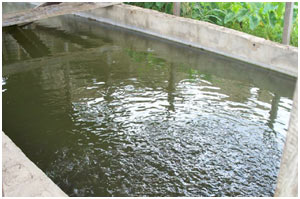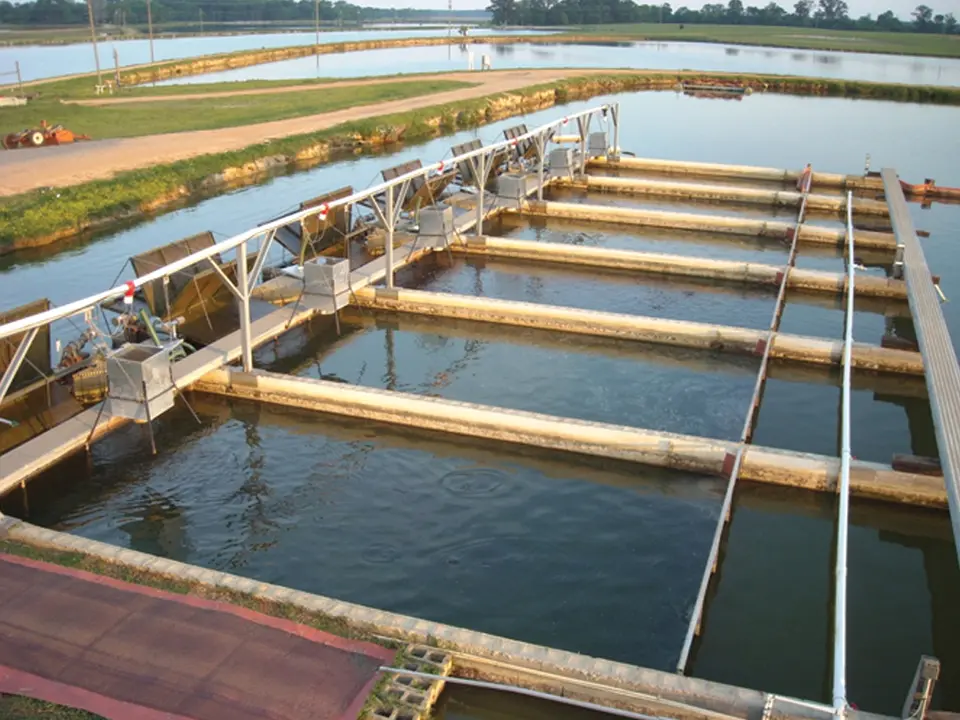08055999218
Recommended Stocking Rates for Different types of Culture medium
Culture medium refers to the type of environment or holding facility in which we nurture our farm raised fish. Each size of culture medium has specific volume of water it can contain. Consequently, that determines the volume of dissolved oxygen available to adequately sustain aquatic life & for how long. The culture medium stocking rate is the number of fish the pond can support without undue stress on the fish.

Stocking too few fish per pond may enhance fish growth rates but will not make the business economically viable. However, overstocking the pond will lead to slow growth & small fish size at harvest. It may also predispose the fish to disease outbreaks.
It’s important that the fish farmer understands the optimal stocking rates for each of his ponds & abide by it in order to provide conducive environment for the fish during the grow out period.
TYPES OF CULTURE MEDIUM & STOCKING RATES
FREE RANGE SYSTEM: earthen ponds, stocking rates is 10 – 50fish per cubic metre of water.
FLOW-THROUGH SYSTEMS: concrete, plastic, or tarpaulin ponds, stocking rates is 50 – 100 fish per cubic metre of water

WATER RECIRCULATING SYSTEM: stocking rates is 100 – 400fish per cubic metre of water
EXAMPLE:
Let’s assume a pond has a length of 15ft, breadth of 10ft and a height of 5ft. Calculate the recommended rates for the different culture mediums.
SOLUTION:
First, you must ensure you take you pond measurements in metres, however, you can convert to metre if the dimensions were taken in feet.
Just multiply the number in FEET by 0.3048 or divide by 3.28 to convert to metre
1m = 3.28ft
Length = 15ft
Length = 15 x 0.3048 =4.57m
Or
Length = 15 / 3.28
Length = 4.57m
Breadth = 10ft
Breadth = 10 x 0.3048 = 3.04m
Height = 5ft
Height = 5 x 0.3048 = 1.52m
The pond is cuboid in shape
Hence, the VOLUME = LENGTH x BREADTH x HEIGHT
POND VOLUME = 4.57m x 3.04m x 1.52m
POND VOLUME = 21.11 cubic metre
1 metre = 1,000 litre
Hence,
POND VOLUME = 21.11 x 1,000
POND VOLUME = 21,110 liters
So, the pond volume is 21.11 cubic metres
FREE RANGE SYSTEM STOCKING
RATES: 10 – 50 fish per cubic metre
MINIMUM = 10 x 21.11 = 211 fish
MAXIMUM = 50 x 21.11 = 1,055 fish
FLOW-THROUGH SYSTEMS
STOCKING RATES: 50 – 100 fish per cubic metre
MINIMUM = 50 x 21.11 = 1,055 fish
MAXIMUM = 100 x 21.11 = 2,111 fish
WATER RECIRCULATING SYSTEM
STOCKING RATES: 100 – 400fish per cubic metre
MINIMUM = 100 x 21.11 = 2,111 fish
MAXIMUM = 400 x 21.11 = 8,444 fish
Please note that these stocking rates are for raising the fish to 1kg average weights. It’s advisable to settle for any stocking rates between +/- 10% of the average recommendation stocking range.
If the stocking rates are for 1kg, it means the stocking rates will increase if the average weights of the fish are lower or reduce if the average weights of the fish are higher.
For instance, if a farmer wishes to stock his Flow-through Pond with dimensions of length of 15ft, breadth of 10ft and a height of 5ft which was earlier calculated at stocking rate of
MINIMUM = 50 x 21.11 = 1,055 fish
MAXIMUM = 100 x 21.11 = 2,111 fish
STOCKING RATES = +/- 10% AVERAGE STOCKING RANGE
AVERAGE STOCKING RATES = ( 1,055 + 2,111 ) / 2
= 3,166 / 2
AVERAGE STOCKING RATE = 1,583 fishes
At 1kg fish, the pond will stock 1,583 fishes
If the farmer is pushing out mélange of 0.4kg
STOCKING RATE = 1,583 / 0.4
= 3,957 fish
Hence the mélange farmer may stock anything between 3,500 and 4,000 fish
If the farmer is pushing out mélange of 2.5kg
STOCKING RATE = 1,583 / 2.5
= 633 fish
Hence the big fish farmer may stock anything between 500 and 700 fish
It’s important to note that these stocking rates ranges are general guidelines and can vary based on factors such as water quality, feed availability, aeration systems, and management practices. Additionally, different catfish species may have specific stocking rates recommendations. It is always recommended to consult local aquaculture experts, extension services, or experienced catfish farmers in your region to determine the most appropriate stocking rates for your specific situation.
Do you want to learn more about fish farming? Read more on our Fishery Academy page
Follow us on our social media handles: Facebook, Twitter, Instagram and TikTok
